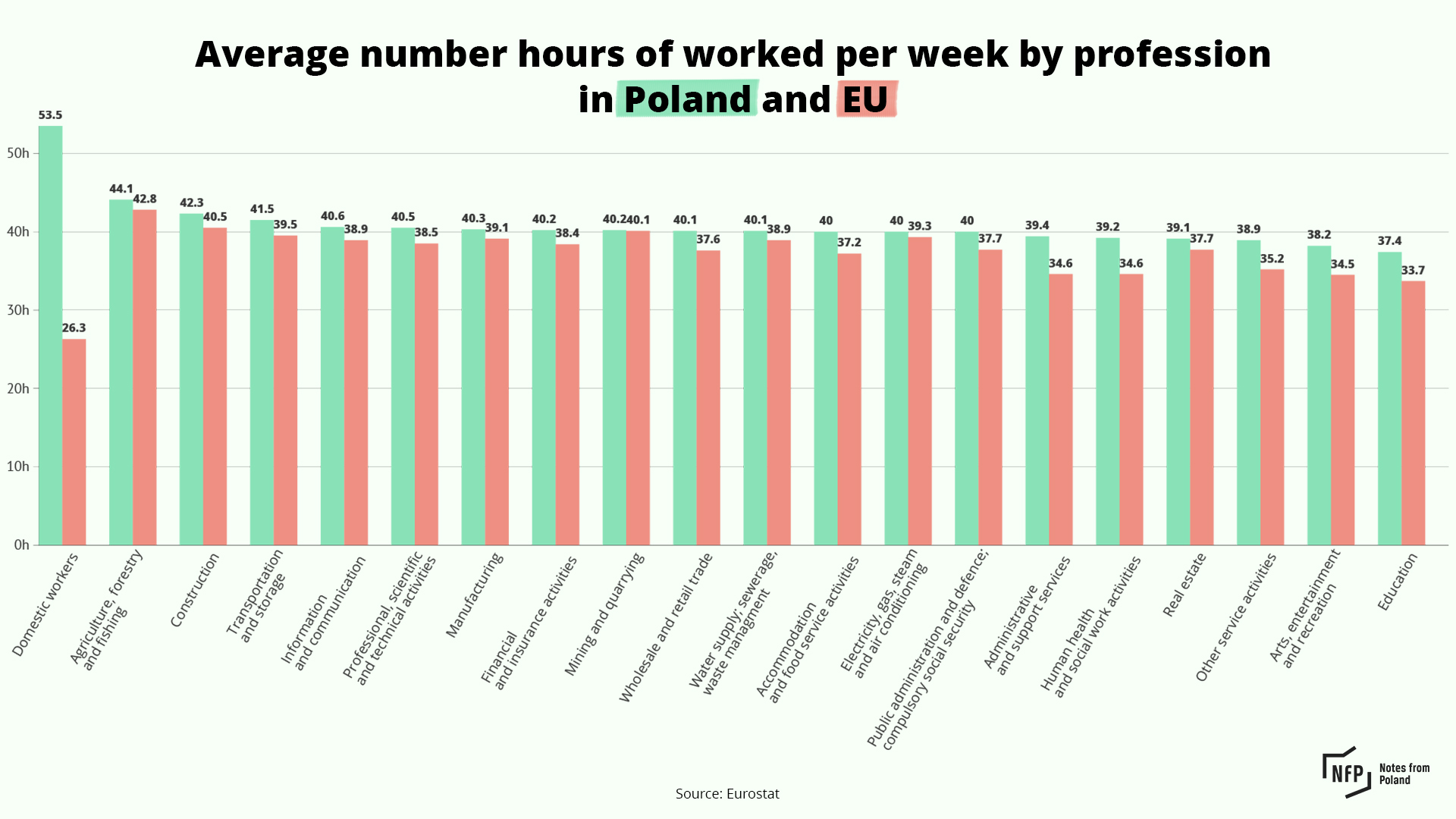Poles work EU’s second-most hours per week

Poles work the second-longest hours in the European Union, new Eurostat data show. In 2022, they worked on average 40.4 hours a week, well above the EU-wide figure of 37.5 hours.
Only the Greeks (41 hours) worked longer than the Poles, while the Dutch (33.2 hours), Germans (35.3 hours) and Danes (35.4 hours) worked for the shortest time on average.
The data refers to both full-time and part-time employees as well as self-employed people. It also includes extra paid or unpaid hours, but excludes travel time between work and home and main meal breaks.
Poland has always been in the top four member states for working hours since Eurostat began collecting such data in 2008. However, over that period Poles’ working hours have fallen from 41.3 hours (while the EU-wide figure has fallen from 38.3 hours).
In 2022, most Poles, 75.3%, worked 40 or more hours weekly (compared to 45.8% in the EU as a whole). The statutory full-time working week in Poland is 40 hours. Only 0.2% of Poles worked 24 hours or less a week, compared to 1.8% across the EU.
Employees in Poland worked on average 39.6 hours a week (compared to 36.7 hours a week in the EU as a whole), while self-employed people worked 44.5 hours a week on average (compared to 42.9 across the EU).
Men in Poland worked on average longer (41.5 hours per week) than women (39.9 hours).
The Left has pledged to introduce a 35-hour working week if it comes to power in October’s elections.
It also unveiled three female co-leaders to join its existing three male ones.
„We’re like the Avengers, we have superpowers,” said @RobertBiedron https://t.co/zW8vcDuw8z
— Notes from Poland 🇵🇱 (@notesfrompoland) September 4, 2023
Broken down by professional groups, domestic workers worked the longest hours in Poland, 53.5 a week on average, more than twice the European average (26.3 hours) for that profession.
In second place came those employed in agriculture, forestry and fishing (44.1 hours) followed by construction workers (42.3 hours) and those working in transport and storage (41.5 hours per week).
Meanwhile, those employed in education (37.4 hours) and arts, entertainment and recreation (38.2 hours) had the shortest working weeks in Poland.

The latest OECD figures – also from 2022 – likewise show that Poles have among the longest working hours in the EU, behind Greece but also Cyprus.
In addition to the long working week, Poland also has one of Europe’s the lowest unemployment rates, which stood at 2.9% in 2022, according to Eurostat. The Czech Republic was the only EU country to record a lower unemployment rate, at 2.2%.
Earlier this month, The Left (Lewica), the third-largest group in parliament, promised to introduce a 35-hour working week if it comes to power at October’s elections, pointing to the fact that Poles work some of the longest hours in developed countries.
OECD Chart: Hours worked, Total, Hours/worker, Annual, 2022
Main image credit: Kateryna Babaieva / Pexels

Alicja Ptak is senior editor at Notes from Poland and a multimedia journalist. She previously worked for Reuters.






